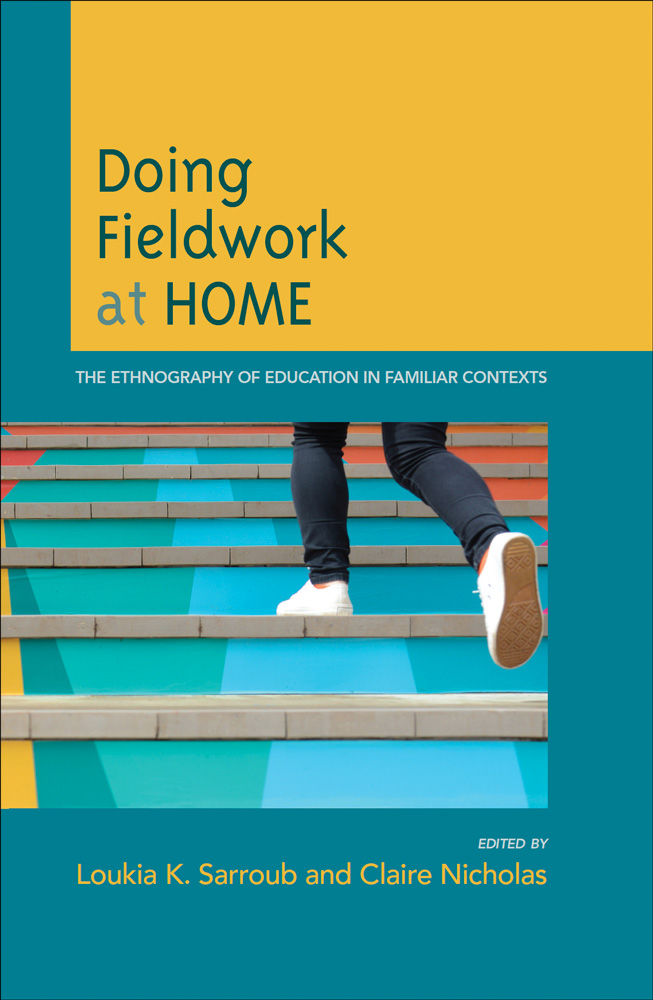
Doing ethnography in familiar contexts

Professor Lisa Russell
HudCRES
Recently appointed editor of the Journal of Ethnography and Education
The degree of familiarity an ethnographer has with the field has long been exposed as a crucial question which shapes the ethnographic journey for the ethnographer and the participants and education-based contexts they are working within.
Familiarity may incorporate similar or even shared work, education and/or personal experiences, similar personality and cultural traits or indeed a sharing of a specific physical place, such as a particular geographic location or social site such as a school, prison or university.
Specifically, the degree of familiarity can influence how the ethnographer;
- gains entry to the field
- experiences those initial ethnographic encounters
- initiates rapport and trust with participants
- positions oneself within the (often shifting) insider-outsider continuum - including the extent to which one might decide to ‘intervene’
- gathers ‘back-stage’ information
- understands and interprets the raw data
- exists in the field
- forms the consequent meaning-making and knowledge that is disseminated as a result (Delamont and Atkinson, 1995).
Thus, how well the ethnographer knows the field (in advance and during fieldwork), in addition to how well the field knows the ethnographer shapes every part of the research process.
Given the length of time ethnographers devote to the field, most ethnographers experience being a familiar face and a stranger within the same social site of investigation – the importance here is for the ethnographer to recognise their degree of familiarity and reflexively manage their positionality in the field to ensure validity of findings.
Questions about how the ethnographer and indeed the participants define and understand the ‘home’ and how this affects the ‘everyday’ being (for the ethnographer and the participants) in the field are thus important questions which deserve further scrutiny.
Where the ethnography takes place is an important consideration. Each ethnography is individual in nature and incorporates a wealth of in-depth data and contextualised understandings regarding particular cultures, in particular places during particular times.
In the advent of Covid-19 how and where ethnography is conducted shifted due to the restrictions of social-distancing – people around the world negotiated different ways of interacting in digital (as well as sometimes physical) spaces. Important questions regarding what we as ethnographers define and understand as the ‘local’, ‘home’ and ‘familiar’ thus came to the forefront again. Indeed, more could be done to theorise the concept of what is meant by doing ethnographic fieldwork in the ‘home’, while simultaneously acknowledging the footprint some ethnographic practices leave in their wake.
Bob Jeffrey and I conducted a workshop ‘Carrying Out Ethnographic Research In Local Contexts: Dilemmas, Issues and Practices’ at the 2018 Oxford Ethnography and Education Conference. A group of ethnographers from across the globe discussed how they experienced doing ethnography on so called ‘home turf’, the result of which culminated in a book - ‘Doing Fieldwork at Home: The Ethnography of Education in Familiar Contexts’ edited by Loukia K. Sarroub and Claire Nicholas.
The book engages an international audience and is a worthy read for early career researchers, as well as the more experienced. Indeed, anyone interested in or teaching about doing ethnography or doing fieldwork within ‘home’ or ‘familiar’ settings will find this book useful when considering the interconnected methodological, ethical and analytical issues one may face when balancing the wobbly tightrope of simultaneously trying to remain close to the field, and at a far enough distance to ensure rigour and credibility within the research design.
Read my full review of this book in Anthropology and Education Quarterly.
